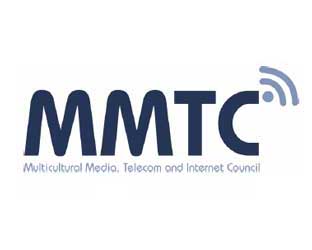On Labor Day, the Washington, D.C.-based Multicultural Media, Telecom and Internet Council (MMTC) sent a letter to the FCC “respectfully recommending four steps it can take immediately, upon delegated authority, to improve EEO enforcement.”
The NAB and small MVPD advocacy group ACA Connects teamed up in offering the Commission their thoughts on the MMTC’s proposals.
Now, in reply comments, the MMTC is responding to those two influential lobbying organizations, saying the matter “can probably be handled on delegated authority.”
That’s according to David Honig, the well-known President Emeritus and Senior Advisor for the MMTC and a familiar face around D.C. regulatory circles.
In a five-page reply to the Commission dated Oct. 11 and shared with RBR+TVBR during the Columbus Day holiday weekend, Honig addresses each of the four steps MMTC offered, and how NAB/ACA Connects responded.
First, the MMTC requests that the FCC substantially increase the percentage of employment units audited each year. The NAB and ACA oppose the MMTC’s proposal to expand the number of units undergoing an audit.
“However, neither party disagrees with our observation that because only 5% of units undergo an audit every year,” Honig says, and “this means that a unit is audited every 20 years—a length of time that far exceeds the typical station holding period.”
He adds that these audits permit the agency to occasionally “trust but verify.”
The NAB also maintains that the low level of NALs in response to audits justifies cutting back on the audit program.
Honig’s retort? “The rarity of proven violations of a law is not proof that there is too much prescriptive or proscriptive law enforcement. No one would cut back on clean water, clean air, food safety, or auto safety enforcement audits because these audits rarely apprehend violators.”
He continues, “The rarity of serious violations may mean any of three things: (1) that the audit program is a powerful deterrent to wrongdoing; or (2) the audit bar is so low that it fails to catch violators; or (3) over time, violators have figured out how to work the system so as to mask their noncompliance. Or it could mean a combination of these things. What it does not mean in the EEO context is that there is evidence of genuine nondiscrimination that would continue even if enforcement were diminished.”
Honig also says a NAB argument that cost factors must be considered is flawed, noting, “the actual cost of responding to an audit is negligible. It has long been settled that the EEO recordkeeping requirements are reasonable.”
He adds, “The NAB’s and ACA’s undocumented non-crisis of ‘paperwork’ does not justify any relaxation of the coefficients of the audit program.”
Further addressing cost concerns, Honig says, “The Commission can be faithful to its EEO goals and to its cost/benefit mandate by conducting a pilot program to test expanded audits and conduct an assessment of their practicality, cost, and impact. Pilot programs are a generally accepted mechanism by which a new regulatory initiative can be designed to maximize its impact and minimize its costs.”
On a positive note, the NAB and ACA Connects each support the MMTC’s proposal to issue a Public Notice reminding the public of the agency’s whistleblower and anti-retaliation protections, and install a secure whistleblower phone line.
Additionally, the groups do not object to the MMTC proposal to publish an EEO primer, best practices, FAQs, and model EEO programs.
From the RBR+TVBR Archives:
MMTC To FCC: Delegated Authority Can Improve EEO Enforcement Now





